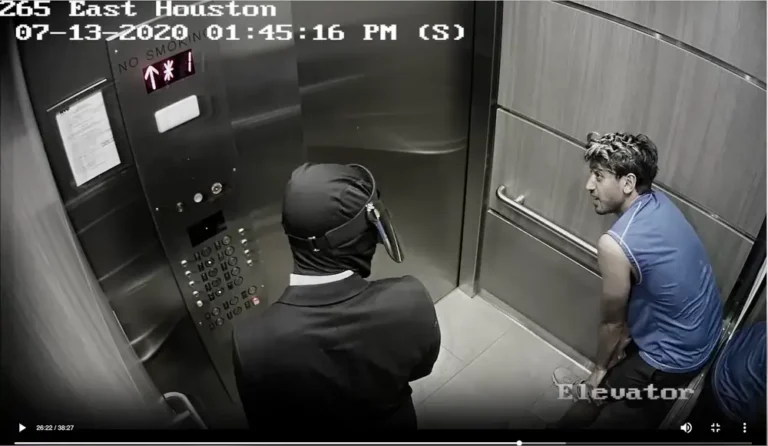Meta’s mandatory return to office is ‘a mess’

- The company formerly known as Facebook is now enforcing an RTO mandate of 3 days a week.
- Workers said there’s not enough office space or privacy. They must comply or be fired.
- Many have applied to be remote. Until OKd, office work is required, even when teams are elsewhere.
Meta’s mandate to return to office has gone about as well as the metaverse has so far.
As of September 5, nearly all of the company’s remaining 65,000 employees were required to be in the office at least three days per week. Employee attendance is tracked daily, and failure to comply may result in termination.
As a result, thousands of Meta employees have returned to work. After a sudden shift away from policies that were very pro-remote work, they’ve been met with a lack of space and privacy, as well as productivity challenges.
“It’s a mess,” said one current employee of Meta’s RTO thus far. “And all of this because remote onboarding new hires is difficult.” Instead of addressing the issue, they simply decided to return to the status quo.”
Seated on the floor
According to three employees, one consistent issue is a lack of conference rooms for team meetings. Sources requested anonymity because they are not authorized to speak to the press.
All agreed that this was an issue at Meta in 2019, prior to the pandemic causing a surge in white-collar jobs to be done from home. However, the company had fewer employees at the time.
People said it’s now difficult to find a conference room at all, let alone one large enough for an entire team to meet for an hour or two.
One person mentioned that after days of trying to get a meeting room at Meta’s Menlo Park campus, a small room became available. Due to a lack of chairs and table space, the majority of the team ended up sitting on the floor as they worked through an issue during the meeting.
“We’ve worked to address this with more collaborative spaces and workstations that allow for video calls and focused work,” a spokesperson for Meta stated. “It’s important to note that we have roughly 80 offices around the world and our working to make sure our teams have the best experience possible as we welcome people back to the office.”
Shared workstations
“We have not yet figured out hybrid work,” Instagram CEO Adam Mosseri wrote on Threads. “Assigned desks result in a lot of empty chairs.” There are a lot of unfamiliar faces at hotel desks. Pods provide privacy but take up a lot of space. We have a lot to learn.”
Unassigned desks, also known as “hot desks,” must be reserved in advance. Last year, Meta announced that it would implement a partial desk sharing model in its offices for employees who continued to work from home the majority of the time.
With RTO, some people who were effectively working from home full-time and lost assigned desks, as well as those who officially became remote workers and gave them up, are having difficulty obtaining and maintaining desks when they do need to come into the office.
“It seems impossible to get one desk for a long enough period,” one employee said. The person mentioned having to go between hot desks on different floors at Menlo Park to get through a work day where they were required to come in for meetings.
Any issues with hot desking should be resolved, according to the Meta spokesman, if desks are booked properly through Meta’s online desk reservation system, which allows a person to book a desk a week in advance for up to three days in a row.
“No one is quitting”
However, such frustrations do not result in resignations.
“No one is quitting,” said one employee. Most people are doing everything they can to keep their jobs, according to the person, especially given how difficult half-year performance reviews have been, and the continued mandate that team leaders decide that 14.5% to 16.5% of their employees fall into the lower performance categories of “meets most” expectations and “needs support.” Meta’s other performance expectation categories are “redefines,” “greatly exceeds,” “exceeds,” and “meets all.”
“They made it almost impossible to get a ‘exceeds,'” an employee said of the half-year reviews, which concluded in early summer. “The next round will be interesting.”
Permanently remote applications
Under the new RTO policy, anyone who has worked at Meta for 18 months or more can apply to become a permanent remote worker. Many employees have, despite the fact that the approval process appears to be slow.
“Hundreds of people applied and have yet to hear back,” an employee said. They estimate that the number of remote work applications is “in the thousands.”
Lori Goler, Meta’s head of HR, stated on RTO that remote work applications received since the mandate was announced in late August will not be reviewed until the end of October. The applications will then be reviewed on a monthly basis.
Everyone with an assigned office is required to appear three days a week until those applications are approved, regardless of how their team is distributed.
Connecting to Zoom
One employee mentioned that the majority of their team is located in other offices. That effectively means that their required in-office work is equivalent to working from home. Except for the commute.
Others are in the same boat, at least for the next few weeks, as they await approval of remote work applications.
“People are just coming into the office to be on Zoom,” explained the employee. “Why?”






